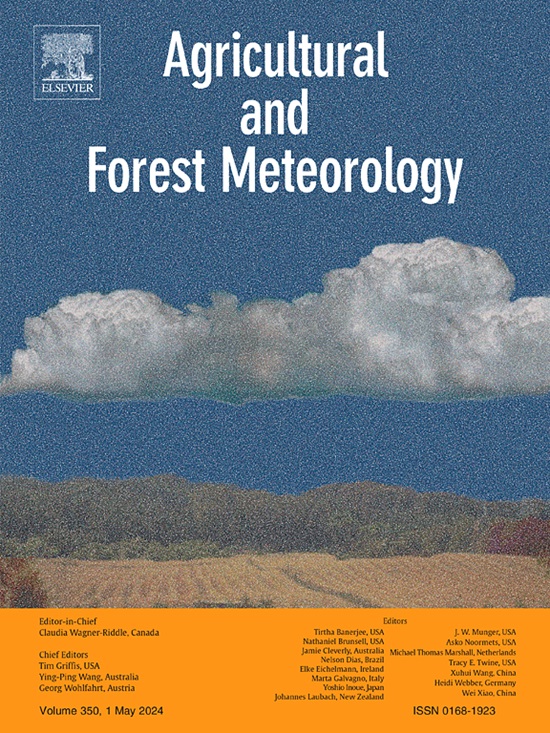Mitigating the detrimental effects of climate warming on major staple crop production through adaptive nitrogen management: A meta-analysis
IF 5.6
1区 农林科学
Q1 AGRONOMY
引用次数: 0
Abstract
Crops face vulnerability due to climate change, but the consequences of warming on crop production across diverse environmental conditions need to be better understood. We conducted a global meta-analysis by analyzing 5690 paired observations to understand the warming effects on the production of four major staple crops (wheat, rice, maize, and soybean). Results indicated that a 2.1 °C warming decreases yield for the four crops by 14 %, nitrogen use efficiency by 10 %, and biomass by 4 %. Projections based on future 2 °C warming scenarios indicate that global yields of these four crops could decrease by 17 % across diverse soil conditions and climates, particularly showing greater yield loss in regions with low precipitation and available nitrogen. However, the adverse effects on yield may be alleviated by management measures that improve nitrogen availability such as optimized nitrogen fertilizer inputs and practices that enhance soil nitrogen supply. Our findings underscore the necessity for adapting such practices in crop production systems, particularly in America and China, where adjustments in crop selection, soil management, and fertilizer practices are essential to sustain crop yields and ensure global food security in the forthcoming decades. The appropriate management choice however requires a deeper exploration of the underlying mechanisms behind the observed yield reductions
通过适应性氮管理减轻气候变暖对主要作物生产的不利影响:一项荟萃分析
由于气候变化,作物面临脆弱性,但需要更好地了解不同环境条件下变暖对作物生产的影响。通过对5690个配对观测数据的分析,我们开展了一项全球元分析,以了解变暖对四种主要作物(小麦、水稻、玉米和大豆)生产的影响。结果表明,升温2.1°C,四种作物的产量下降14%,氮利用效率下降10%,生物量下降4%。基于未来2°C变暖情景的预测表明,在不同土壤条件和气候条件下,这四种作物的全球产量可能减少17%,特别是在降水和有效氮较少的地区,产量损失更大。然而,通过优化氮肥投入和增加土壤氮供应等提高氮素有效性的管理措施,可以缓解对产量的不利影响。我们的研究结果强调了在作物生产系统中采用这种做法的必要性,特别是在美国和中国,在这两个国家,作物选择、土壤管理和肥料做法的调整对于维持作物产量和确保未来几十年的全球粮食安全至关重要。然而,适当的管理选择需要对观察到的产量下降背后的潜在机制进行更深入的探索
本文章由计算机程序翻译,如有差异,请以英文原文为准。
求助全文
约1分钟内获得全文
求助全文
来源期刊
CiteScore
10.30
自引率
9.70%
发文量
415
审稿时长
69 days
期刊介绍:
Agricultural and Forest Meteorology is an international journal for the publication of original articles and reviews on the inter-relationship between meteorology, agriculture, forestry, and natural ecosystems. Emphasis is on basic and applied scientific research relevant to practical problems in the field of plant and soil sciences, ecology and biogeochemistry as affected by weather as well as climate variability and change. Theoretical models should be tested against experimental data. Articles must appeal to an international audience. Special issues devoted to single topics are also published.
Typical topics include canopy micrometeorology (e.g. canopy radiation transfer, turbulence near the ground, evapotranspiration, energy balance, fluxes of trace gases), micrometeorological instrumentation (e.g., sensors for trace gases, flux measurement instruments, radiation measurement techniques), aerobiology (e.g. the dispersion of pollen, spores, insects and pesticides), biometeorology (e.g. the effect of weather and climate on plant distribution, crop yield, water-use efficiency, and plant phenology), forest-fire/weather interactions, and feedbacks from vegetation to weather and the climate system.

 求助内容:
求助内容: 应助结果提醒方式:
应助结果提醒方式:


